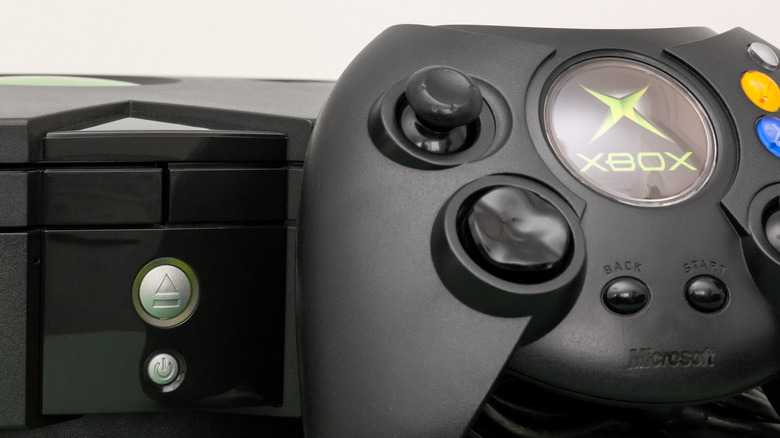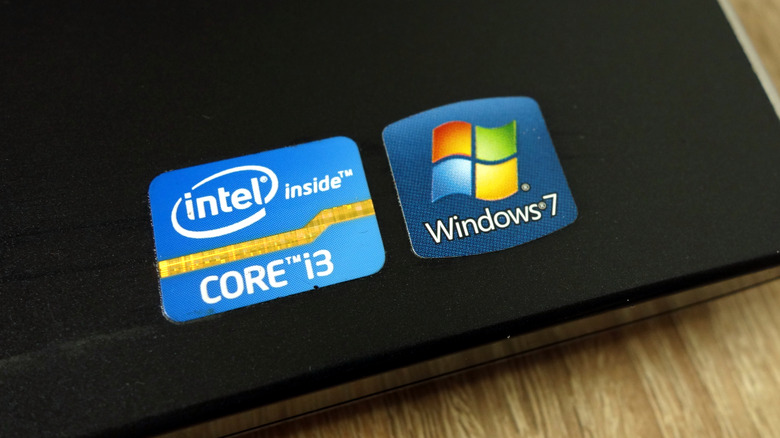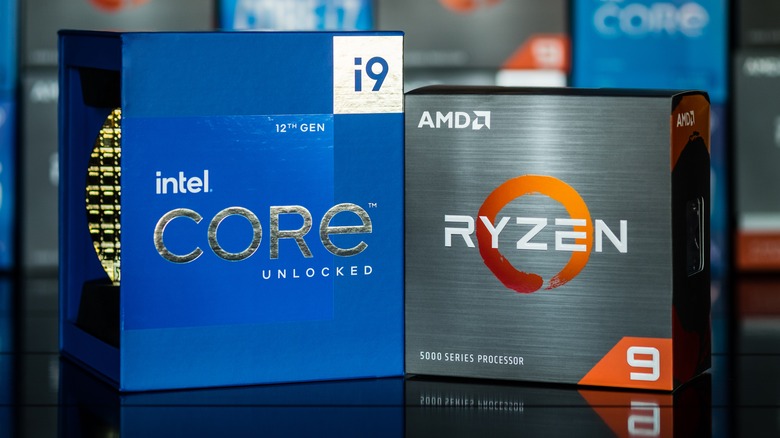Why The Original Xbox Made A Last-Minute Switch From AMD To Intel
Xbox has had it shady moments from the 360 era and onward, ranging from profiting off the Red Ring of Death to threatening the used game market. According to former Xbox developer Seamus Blackley, the original Xbox actually started out on a questionable note: despite using AMD hardware to test and develop the prototypes, Microsoft made a last-minute switch to Intel for the final product.
This isn't the first anecdote about the development of the Xbox that Blackley has had to offer — the unofficially titled "Father of the Xbox" has previously shared how difficult it was to lug around the very literal Xbox prototype to exhibitions and how the decision to make the logo green was pure happenstance. But this tweet thread took on a new level of candor as Blackley apologized to AMD for the bait-and-switch that left him "[feeling] like such an ass." Apparently, the AMD engineers found out about the decision during the console's reveal.
Before that fateful moment, it seemed like AMD's involvement with the system was pretty much set in stone: magazine scans of the Daily Radar from a user on ResetEra show that even official publications of the time reported on the then-upcoming Xbox being equipped with AMD's newest chip before it released. The reason for such a sudden change of heart? "Relationship" and "pure politics," according to Blackley.
Blackley's comment may refer to the WinTel alliance
The tweet Blackley responded to has since been deleted, but according to TechSpot, the original question concerned whether the switch to Intel was "an engineering or financial decision." Without further elaboration, it's a little hard to understand just what "relationship" Blackley meant. However, in the context of the tech industry dynamics at the time of the original Xbox's development, one strong candidate pops up: the "WinTel duopoly" that dominated the CPU market at the time.
In technical terms, "WinTel" is simply shorthand for a computer that uses Intel hardware to run a Windows OS (via Techopedia)— but according to ABC News, this common combination was actually born of an alliance made in the early '80s when personal computers had just started to find a market. The PC as it was known at the turn of the century was developed by IBM, Intel, and Microsoft, but at the end of the day, IBM was shuttered while Intel and Microsoft went on to dominate the market with their duopoly.
This dual empire lasted until the late aughts to early '10s, when the rise of smartphones and other personal computing devices put a strain on the alliance — as evidenced by coverage from outlets like PCMag and The Wall Street Journal at the time — but this was long after the development of the original Xbox, during which the duopoly still held strong.
Other explanations don't fit as well
So, does this mean Microsoft abandoned AMD to preserve the interests of the WinTel alliance? Without confirmation from Blackley or anyone else from the companies involved, there's no way to say for sure — however, fans feel there are very few other plausible explanations that fit the circumstances. Commenters on Reddit threads about the topic seem to agree that it wasn't motivated by any technical or engineering aspects, as AMD had the superior chips at the time (corroborated by retrospectives and reports from sites like ArsTechnica, Zunesis, and CNET).
There is some speculation on the financial aspect (on both Reddit and Twitter) in that Intel may have been able to offer a lower price. However, as one user pointed out, the fact that AMD was blindsided instead of given the chance to make a counteroffer may give more credence to the theory that it was a backroom deal made to protect a business relationship during a time when Intel was losing its dominance of the CPU market to AMD.
While the real reason may never be confirmed directly from any of the parties involved, no one can deny that AMD managed to get the last laugh in the end: As of the ninth console generation, AMD has dominated the gaming console market with a solid place in the Xbox Series X|S and PlayStation 5, with nary an Intel chip to be seen in any of the major systems.



